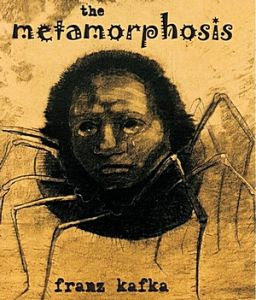“It’s all said and done, it’s been real, and it’s been fun”
dc113507 on May 9th 2012
Someone once said all good things must come to an end. Even though I’m sure whoever said this wasn’t talking about a semester long blog assignment for an English Literature class, I really feel like this quote applies to the experience I have had with my blog. When I started my blog I wasn’t sure what approach I wanted to take with it. I’d never had to construct a blog for a class before and I was somewhat uneasy about the considerable amount of freedom we were allowed with this assignment.
What direction should I take my blog in? Should it be formal? Casual? A mixture of the two? I am in no way a tech savvy girl(my 3 year old cousin knows how to use my iPad more that I do) I didn’t know the first thing about imbedding media onto a website and was 100% convinced this blog was going to be an eye sore to anyone who viewed it. Should have just stuck with the ‘teach a text’ option and called it a day.
Those were basically my thoughts going into this project and I have never been proven so wrong! In all honesty this blog has been one of the most enjoyable assignments I have ever had to work on. I had so much fun developing the texts we have read in class and relating them to my theme. I am somewhat sad that it has to come to an end. Whenever we would discuss texts in class I would sit and suddenly become inspired to write on my blog because of something Professor Smith or a classmate had said. Writing on this blog became a relaxing escape. I can truly say that at points it didn’t even feel like schoolwork.
I was inspired to chose this theme because as a reader I feel like I’m constantly trying to find ways to relate texts to my own life. I have always felt that there is a reason that certain novels and plays from centuries ago are still so popular amoung audiences today. They have to hold some sort of universal truth that expands into a contemporary audience, and isn’t just stuck in their century of origin. Some texts are harder to decide than others and students become discouraged and don’t want to dig deeper. It’s hard when you just really don’t understand something but I believe it is always worth it to go the extra mile and challenge yourself. I wanted my blog to expose readers to a different view point to readings that they may have not normally considered. I sometimes faced challenges trying to relate our readings in ways that I felt were in keeping with my theme, but I always managed to find a way to parallel an aspect of a text to a contemporary society in some original way. This blog challenged me intellectually and I enjoyed every minute of it! My experience in this class has been a positive one and I hope you have all been able to take something away from this blog! Thanks for reading 🙂
Filed in Uncategorized | 4 responses so far








 “But after all, we are a young nation, and vanity is a fault of youth.”- Rebecca Davis
“But after all, we are a young nation, and vanity is a fault of youth.”- Rebecca Davis